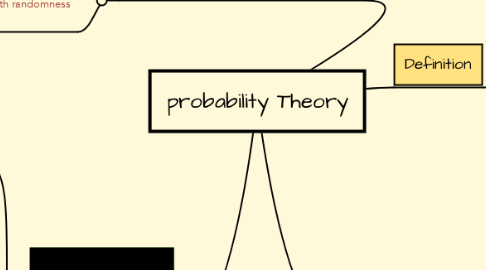probability Theory
by Rajitha Harshana

1. theoretical development
1.1. Markov
1.1.1. Semi MArkov : that the former is defined as a two-tuple of states and times, whereas the latter is the actual random process that evolves over time and any realisation of the process has a defined state for any given time.
1.2. Random Walk : random walk is nothing else but Markov model with randomness introduced at every step
2. Practices
2.1. Event Trees : Graphical technique that uses Boolean operators to evaluate the consequences of a risk by drawing all probable outcomes of an initiative event in their logical sequences.
2.2. Fun
2.2.1. Stock Market : this is a game theory where the maximum outcome of a game is one where no players has an incentive deviate from his chosen strategy after considering and opponents choice
2.2.2. Games : is a competition in which two opposing parties each attempt to achieve same goal according to pre- specified rules
2.3. MArkov Decision process : this was based on decision making situations such as outcomes that are partly random or partly under control of a decision maker, this is mathematical decision making framework
2.4. operation Research : This is logical method of problem solving and decision making which useful in management of organization
3. Definition
3.1. frequency definition : rf = (number of observations in the sample with A)/(number of observations)
3.2. axiomatic definition : building the notion of a probability function from a number of assumptions/axioms. The properties of that probability function follow from the assumptions, mapping an event into interval between 0 and 1.
3.3. classical definition : Given n equally likely outcomes, where s represents the number of successful outcomes, and f represents the number of failing outcomes, s + f = n. The probability of success is s/n .
4. Orgins : Cardano, (1501-76) has mentioned ‘probabilities’ describing a process of dice throwing game. Later Pascal and Fermat in their correspondence developed it.



